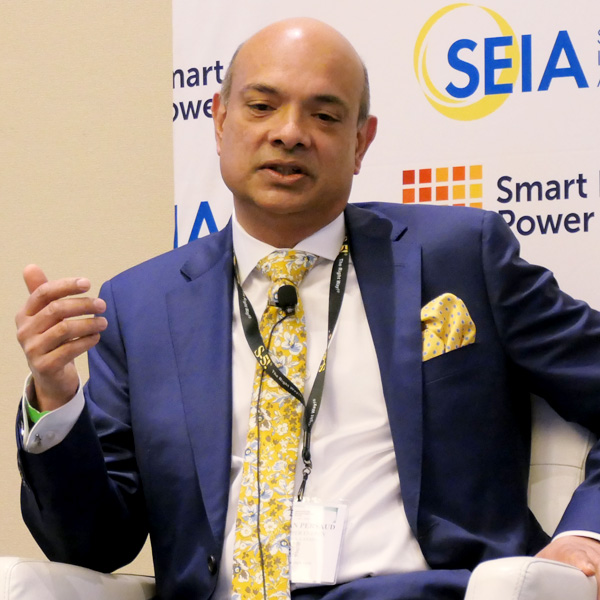MISO stakeholder committee chairs last week elected not to adopt rules regulating stakeholder presentations during meetings.
On Wednesday, the Steering Committee, comprising chairs from eight MISO committees reporting to the grid operator’s Advisory Committee, declined to advance a suggested insert drafted by Clean Grid Alliance’s Rhonda Peters to its Stakeholder Governance Guide.
The addition would have dictated that stakeholders presenting during meetings must be “treated uniformly and without discrimination or preference.” It also would have compelled the RTO to deliver its own presentations and discuss suggested changes by stakeholders before it could adopt them.
“Stakeholders cannot adequately and sufficiently represent MISO’s interests or accountability,” the language said.
Peters said the grid operator’s adoption of stakeholder suggestions without fully vetting them with the larger stakeholder community has been an issue that has come up several times over the 14 years she’s been participating in the stakeholder process. She said staff will sometimes file with FERC tariff modifications on stakeholders’ recommended changes without addressing the edits with stakeholders.
Peters said the most recent example arose after a Planning Advisory Committee meeting when MISO filed tariff changes pertaining to transmission owners’ reinstated option to self-fund network upgrades. She said staff should have vetted the edits pertaining to the self-funding option with the Interconnection Process Working Group before drafting and filing the changes.
MISO in 2018 acted on FERC’s direction and reinstated TOs’ right to self-fund network upgrades necessary for new generation. The decision has been a hot-button issue, spawning three years’ worth of reopened contracts, refunds to interconnection customers and condemnation from one FERC commissioner. (See FERC Upholds MISO Self-fund Order, Glick Dissents.)
“There are some stakeholders that MISO feels represent them,” Peters said. “All stakeholders should be treated in the same manner, and that has not been happening.”
She implied that TO recommendations carry more weight with the RTO than those from other stakeholders.
Committee chairs said while they were sympathetic to the issue, they didn’t see a need to add a section on stakeholder presentations to the governance guide.
“I’m worried if we try to add language to address every situation in the Stakeholder Governance Guide, it will become unwieldy and collapse under its own weight,” WEC Energy Group’s Chris Plante, the Resource Adequacy Subcommittee chair, said.
Plante said he’d rather see committee chairs handle these types of situations. Planning Advisory Committee Chair Cynthia Crane, with ITC Holdings, agreed that the new section would be “overly prescriptive.”
Ameren’s Ray McCausland, who chairs the Reliability Subcommittee, asked stakeholders to bring specific violations of stakeholder treatment to the Steering Committee instead of prescribing vague language in the governance guide.
Market Subcommittee Chair Megan Wisersky, with Madison Gas and Electric, said that the guide’s addition could discourage some stakeholders from coming forward with presentations. In MISO’s stakeholder process, any stakeholder is free to present in meetings if it gives the grid operator enough notice.
Clean Grid Alliance’s Natalie McIntire asked how the issue could effectively be addressed by the committee chairs and vice chairs. “I just feel like there needs to be another solution, one that does function,” she said.
Peters said if she couldn’t get the language accepted, the next step might be taking the issue to MISO’s alternative dispute resolution process.
Customized Energy Solutions’ David Sapper said he’d be interested in hearing MISO’s process for accepting stakeholder suggestions and making FERC filings based on them.
The Steering Committee has no current plans to further address the issue.


